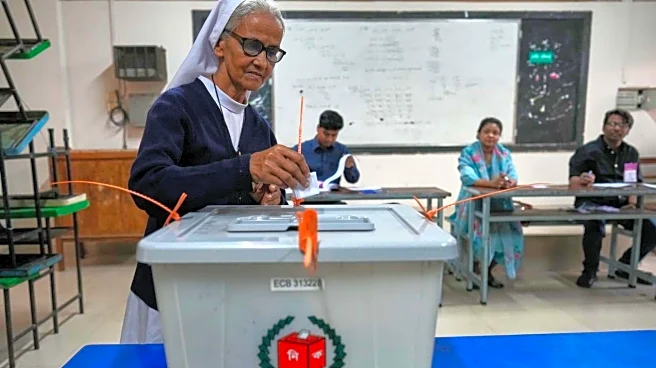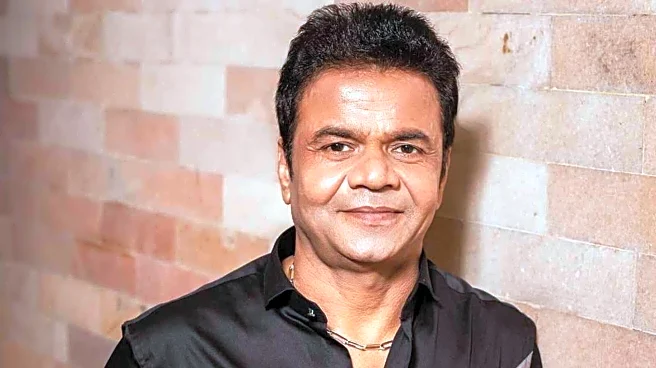Director Shekhar Kapur has triggered a discussion on the internet after sharing a post about what human intelligence really is and where it comes from. He began by recalling a childhood memory where his
grandmother made him eat curd with sugar before exams, a habit he used to laugh at, but now he sees it differently as science reveals how much the gut affects the mind. The filmmaker explained that we usually believe intelligence is only in the brain, yet new studies show that the heart and gut also send strong signals that shape our thoughts, feelings and decisions.
Shekhar wondered if love, feelings and gut instincts come only from the brain or if other parts of the body also play an important role. He pointed out that most of the cells in our body are actually tiny organisms like bacteria, which makes us think about what really makes us “human.” He suggested that before worrying about Artificial Intelligence becoming smarter than us, we should first try to understand our own natural intelligence.
Shekhar Kapur Sparks Debate On Human Intelligence
Taking to X, Shekhar Kapur explained, “My grandmother would feed me a spoonful of Dahi (curd) with sugar just before my exams. My friends laughed at me. I laughed at my grandmother. As if a spoonful of Dahi would help me pass my exams. Only recently has medical science accepted that we have a ‘Gut Brain’ where intuitively ‘Gut Intuition’ was a phrase always used. So when we speak about Artificial Intelligence or AI, we assume that all ‘Intelligence’ lies in the brain. Really? Apparently, there is more research that shows that there is intuition that comes from the heart, the Vagus nerve apparently sends more messages from the heart to the brain than the brain to the heart.”
“So when you fall in love and your heart beats faster, is the brain telling the heart it’s in love or the heart telling the brain of the existence of love? Of course, some say that love is just a chemical response and I am just being emotional or poetic, but where does emotion or poetry come from? And to those sceptics, I ask that science tells us that almost 80% of our cells are our Microbiome, other than viruses and bacteria, so what part of our cells makes up is human in that case? Our Microbiome? Does intelligence lie in our Microbiome?” the director asked.
Shekhar Kapur added, “So in all the controversies around Artificial Intelligence overpowering Human Intelligence, should we not try and understand what Human Intelligence really is? And if there is a locality where it resides or arises, what is that locality?”
My grandmother would feed me a spoonful of Dahi (curd) with sugar just before my exams. My friends laughed at me. I laughed at my grandmother. As if a spoonful of Dahi would help me pass my exams!
Only recently has medical science accepted that we have a ‘Gut Brain’ where… pic.twitter.com/u7HyB5OE3L
— Shekhar Kapur (@shekharkapur) November 27, 2025
Many Point Out How Gut Health Strongly Affects The Mind
Reacting to the post, a user wrote, “Dear Mr Kapur, this hit me right in the heart (and the gut). This traditional practice was pure genius, turns out, probiotics like those in curd do dial down exam jitters by tweaking the gut-brain axis, boosting serotonin and easing anxiety. That heart yantra? Spot on for the love bit, the vagus nerve shuttles way more signals from the heart to the brain (up to 80-90% afferent vibes) than the other way around, whispering those ‘aha’ moments we can’t code into AI yet.”
Another shared, “The gut brain axis is now a medically accepted fact and also that the gut controls the brain. When we say gut, it is the microbiome that controls the brain. Good bacteria give good things and bad ones give bad behaviour. They are essentially created by the food we eat. So food is not just calories or protein and carbs, but it is who we become. That’s why Ayurveda classified food based on outcome, like Satvik, Tamasik and Rajasik. Modern science is slow, but I hope it will eventually reach ancient wisdom before we get intellectually bankrupt.”
“Some day, in the distant future, Western scientists/doctors will discover nearly 5% of all the Universe’s secrets, like our astronomy, Ayurveda, family values, Astrology, influence of stars, etc., discovered by our wise ancestors and sages without million-dollar research and patents,” a comment read.
An individual stated, “With age, I am realising that our culture is and was so ahead of the West that they are discovering those things after so many years and rebranding them with new names. Hopefully, our upcoming generation will realise this and will not make the same mistake we did. Rather ,learn from our mistakes.”
Another mentioned, “As is the case with most of our traditions, there is also a medicinal and scientific reason for giving dahi-chini before exams – Dahi acts as a probiotic and it also de-stresses via the gut-brain axis. Sugar raises blood sugar quickly, making the person more alert and increasing their stamina. Also, in India’s hot and humid environment, curd gives a cooling effect.”
One more shared that intelligence does not come from one single part of the body. It does not sit only in the brain, heart, gut or even in the tiny organisms living inside us. Instead, it appears when all these different systems work together. They explained that intelligence is not located in one spot and there is no single place where intuition lives. Rather, it is like a piece of music created by many players. In this idea, the players are the brain, heart, gut, microbiome, hormones, immune system and even past experiences. When all these parts send signals in harmony, the result is what we call intelligence.


/images/ppid_a911dc6a-image-177105606831633725.webp)

/images/ppid_a911dc6a-image-177105609957469825.webp)
/images/ppid_a911dc6a-image-177105612798527845.webp)









